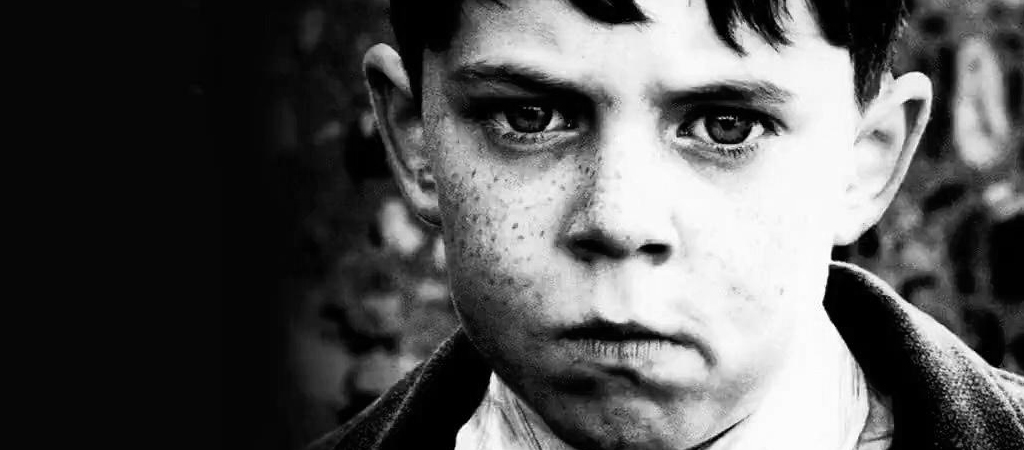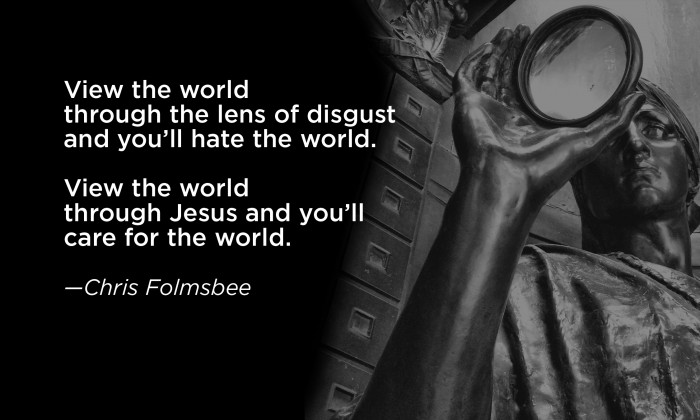At Frankie’s Confession
I love the story of Frankie’s confession – as told by Frank McCourt in his famous autobiography Angela’s Ashes.
The story takes place in Limerick, Ireland when he was a young boy…
His mother had just given birth, and their in-laws from the north sent some money to buy milk for the new baby. But his father, an alcoholic, has taken the money and is drinking it up in the pubs.
His mother sends Frankie to find his dad and bring him home.
Young Frankie can’t find his father, but what he finds instead is a drunken sailor in a pub, asleep, with a mostly untouched plate of fish and chips in front of him.
Ravenously hungry, Frankie takes the fish and chips outside and eats them. Then, feeling guilty for stealing, he decides he better go to confession.
It’s Saturday afternoon. He goes to the church to confess to the priest that he stole fish and chips from a drunken man.
The priest asks him why he did this, and Frankie answers that he was hungry, that there is not a scrap of food in their house, and that his mother is raging by the fire because his father is drinking away the money meant to buy milk for the new baby.
The priest, hearing all this, suddenly becomes quiet. Instead of scolding Frankie and giving him a penance, he does something else…
Quoting Frank McCourt from his book: I wonder if the priest is asleep because he’s very quiet till he says,
“My child, I sit here, I hear the sins of the poor, I assign the penance. I bestow absolution. I should be on my knees washing their feet. Go… pray for me.”
He blesses me in Latin, talks to himself in English, and I wonder what I did to him.
I love this story. And I especially love what happens with the priest.
First, the priest listens. He really listens. He hears the story.
It would be easy for him, as it is for us, to half-listen – to listen for key words – to listen for what he can quickly put in a category: stealing, sin. And then move on to giving instructions, but not really listen.
I love that the priest was quiet. That’s often a sign that we are actually listening (when we’ve stopped running our own mouth).
Second, rather than focusing on the sin of another, he focuses on his own sin. The priest says, “I should be washing their feet.” In doing this, he puts himself on the same level as Frankie. He makes the young boy his equal.
It takes great humility to lower ourselves, especially when we’ve been given positions of power or influence, and admit that we are no better than anyone else.
Third, not only does he make Frankie his equal by confessing his own sin – but he puts Frankie in a place of power by saying, “Pray for me.” He asks the boy to help him.
There is something incredibly beautiful about this scene. A priest hears the confession of a young boy living in poverty, and asks the boy for prayer.
I wonder if we believe the poor have anything we need, anything we want? Do we believe that perhaps God is paying more attention to the poor than those of us who have everything we need?
Finally, the priest blesses Frankie. There is such beauty in the blessing.
As long as we despise people, we will never bless them. The priest, because he heard Frankie’s story, was able to bless him. He wasn’t just blessing a thief – he was blessing a beautiful child, someone deeply loved by God.
This past week, a friend of mine posted a few times on social media some statements like:
Muslims are beautiful people and dearly loved of God.
Homosexuals are beautiful people and dearly loved of God.
The comments that followed by friends/followers were shocking. They were angry, hate-filled, full of outrage and expletives. It was as if he had incited an online riot.
And it breaks my heart—because as long as we despise people, we will never be able to bless them. We will never be able to see their beauty. We will never be able to admit that they are dearly loved by God.
Here’s what Jesus has to say on the matter:
“You’re familiar with the old written law, ‘Love your friend,’ and its unwritten companion, ‘Hate your enemy.’ I’m challenging that. I’m telling you to love your enemies. Let them bring out the best in you, not the worst.
This is what God does. He gives his best—the sun to warm and the rain to nourish—to everyone, regardless: the good and bad, the nice and nasty.
If all you do is love the lovable, do you expect a bonus? Anybody can do that.
What I’m saying is, Grow up. You’re kingdom subjects. Now live like it. Live out your God-created identity. Live generously and graciously toward others, the way God lives toward you.”
—Matthew 5.43-48 select verses, Message Bible



Great post.
I wish more Christians understood this.
We are all loved of God. His mercies and grace are not just for us, but for everyone.
Peace,
Keith
Thank you Keith. And thank you for inspiring me
So simple a child could do it. When we look at children we may see, mischief, we may see them love and perhaps no love in return. It is odd as we get older we change our minds and hearts. Maybe we weren’t prejudiced or judgemental. We learned it. Learned to be prejudice? Why would we want to dislike others who are different? Where in the world did we pick this up? Early school days we played with one another in the playground, then become teens and fighting in the playground.
God forgive me.
Yes! As you said, it takes courage to choose a better and more beautiful way. I too loved the story of the priest. He remained still in his mind and spirit long enough for God’s spirit to cause the scales to fall away. An encounter with truth.